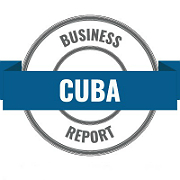Fincimex S.A. reported that remittance services company, American International Services (AIS) has been forced to extend the processing time for remittances based on the difficulty of finding financial institutions to process these transactions.
In October 2020, the Department of the Treasury’s Office of Foreign Assets Control (OFAC) Cuban Assets Control Regulations (CACR) (the “blacklist”) added Fincimex to its list of restricted entities.
OFAC amended its list to remove the Cuban entities it claims are managed by Cuba’s military.
“Specifically, OFAC is amending the CACR to remove from the scope of certain remittance-related general authorizations any transactions relating to the collection, forwarding, or receipt of remittances involving entities or sub-entities identified on the State Department’s Cuba Restricted List (CRL).”
According to an article “Does the Cuban Military Really Control Sixty Percent of the Economy?” by the respected academic, William M. LeoGrande of American University, the U.S. obsession with Cuban military involvement in businesses stems back to a fake news “byte” which began circulating because of an article published by the Miami Herald in 2004. Through repetition by institutions in Miami and the press, the fake news became an “accepted fact.”
LeoGrande, however, presented an excellent analysis of metrics which contradict the fake news, concluding that claim offered as “fact” is “spectacularly wrong.”
General Manager of Financiera Cimex, S.A., Yamil Hernandez Gonzalez told Cubadebate the Cuban government has no direct role in the receipt of remittances.
Companies such as Western Union pay FINCIMEX one dollar for every hundred dollars of remittance as a fee for service, an incredibly common business practice across the globe.
“It is not true that FINCIMEX, the Cuban government, or the armed forces appropriated 20-40% of the money sent to Cuba from the United States, a falsehood that politicians in that country repeat endlessly. I repeat, the money sent was not taxed in any way when it entered Cuba. The recipient received the total amount sent in full and in its entire,” said Hernandez.
Western Union, an American corporation, charges the sender a fee for sending a remittance. Hernández explained the fees for services construct. “It represented approximately five dollars for every $100 and pays FINCIMEX one dollar for services rendered. On all operations, FINCIMEX was paid as a percentage of the price established by Western Union.”
Aisremesascuba said it is working to overcome the obstacles, confident of returning to its usual standards of remittance delivery times.
It emphasized that “all transfers contracted to the country will be credited safely, in no case with any risk of loss”.
Edited by Sue Ashdown

From our staff writers and editors.










